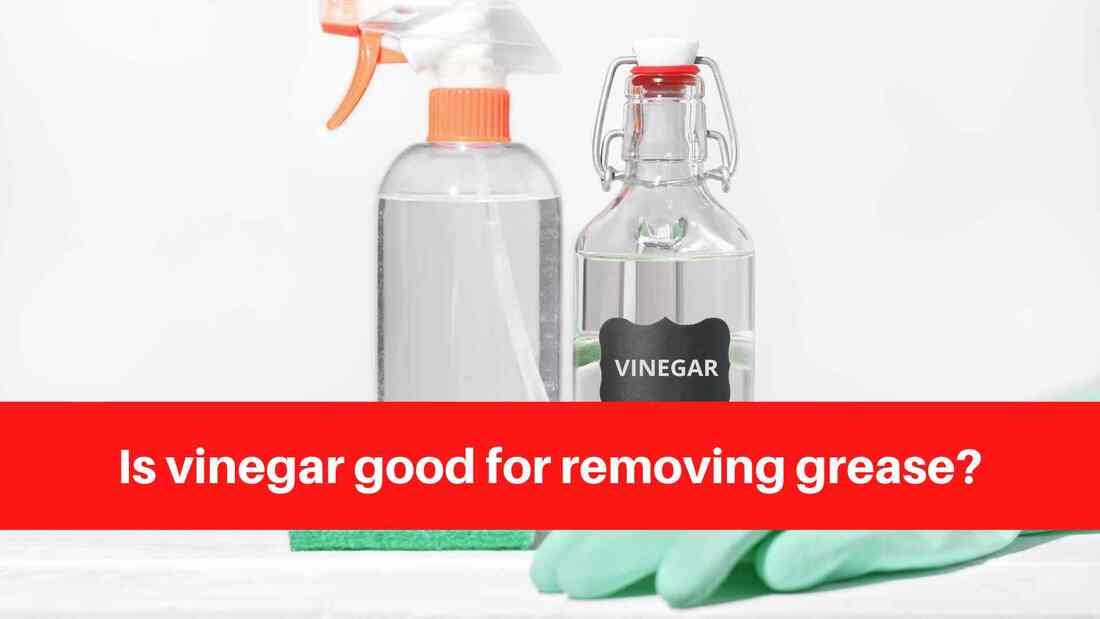|
The Real Deal on Using Vinegar to Remove Grease
Vinegar is a versatile and inexpensive cleaning product that can be used to clean a variety of surfaces in your home, such as kitchen countertops, floors, and even windows. When it comes to removing grease, however, vinegar may not be the best option. Here's what you should know. Why Vinegar Might Not Be Effective for Grease While vinegar is an excellent cleaning agent, it is acidic. That is, while it can degrade and dissolve certain substances, it may not be effective at removing grease. Grease is composed of fatty acids, and acidic products such as vinegar will not dissolve it effectively. Instead, an alkaline cleaner is required to break down the grease and remove it from your surfaces. What is More Effective for Grease? If you want to get rid of grease from your kitchen surfaces, use an alkaline cleaner. Dishwashing liquid or even regular soap can be more effective at removing grease from your dishes and pans. You can also make an alkaline paste with baking soda and apply it to the greasy surface. Allow it to sit for a few minutes before scrubbing with a sponge or brush and rinsing. When Should You Use Vinegar? While vinegar may not be the best option for removing grease, it is an excellent product for cleaning and disinfecting other kitchen surfaces. It can be used to clean countertops, floors, and appliances. Because vinegar is a natural disinfectant, it can also be used to clean cutting boards, sponges, and other kitchen tools. While vinegar is a versatile and inexpensive cleaning solution, it may not be the best choice for removing grease. Grease is composed of fatty acids, and acidic products such as vinegar will not dissolve it effectively. Instead, use an alkaline cleaner, such as dishwashing liquid or even regular soap, to dissolve the grease and remove it from your surfaces. However, vinegar is still an excellent product for cleaning and disinfecting other kitchen surfaces. Comments are closed.
|
Archives
April 2023
Categories |
- Home
- Exhaust Cleaning
-
Hood Cleaning
- Hood Cleaning Service
- Kitchen Hood Cleaning Near Me
- Restaurants Hood Cleaning
- Kitchen Hood Cleaning
- Hood Cleaner
- Commercial Kitchen Hood Cleaning
- Restaurant Hood Cleaning Near Me
- Commercial Hood Cleaning
- Services for Hood Cleaning
- Food Truck Hood Cleaning
- Toronto Hood Cleaning Services
- Toronto Restaurant Equipment Cleaning
- Toronto Fire Prevention Cleaning & Degreasing
- Toronto Commercial Restaurant Kitchen Hood & Exhaust Cleaning
- Toronto Restaurant Exhaust System Cleaning
- Toronto Hospital and Long Term Care Homes Commercial Hood & Exhaust Cleaning
- Toronto Commercial Hood Cleaning
- Contact
- Institutions
- Hood Cleaning Toronto Blog
|
HOOD CLEANING TORONTO
647-931-1260 Toronto Ontario M5N 1M9 Hours of Operation Monday to Saturday 8:00 am - 6:00 pm https://hoodcleaningtoronto.ca |


 RSS Feed
RSS Feed

